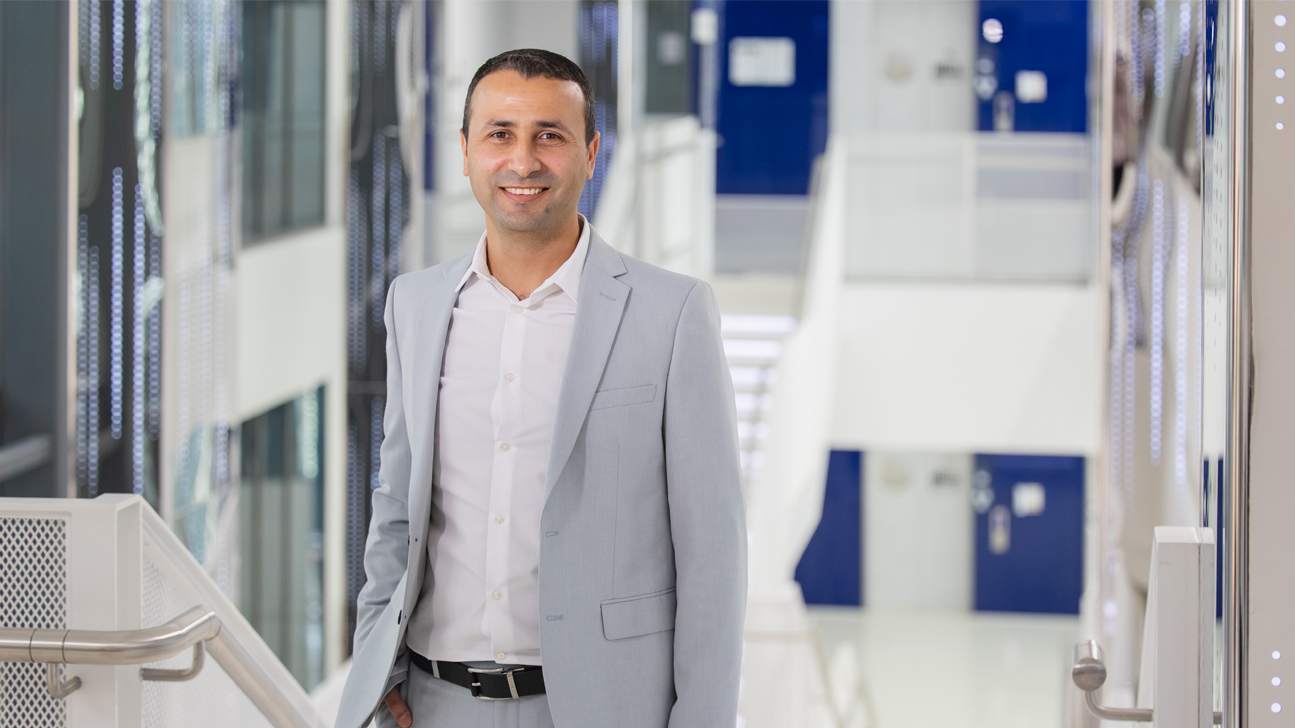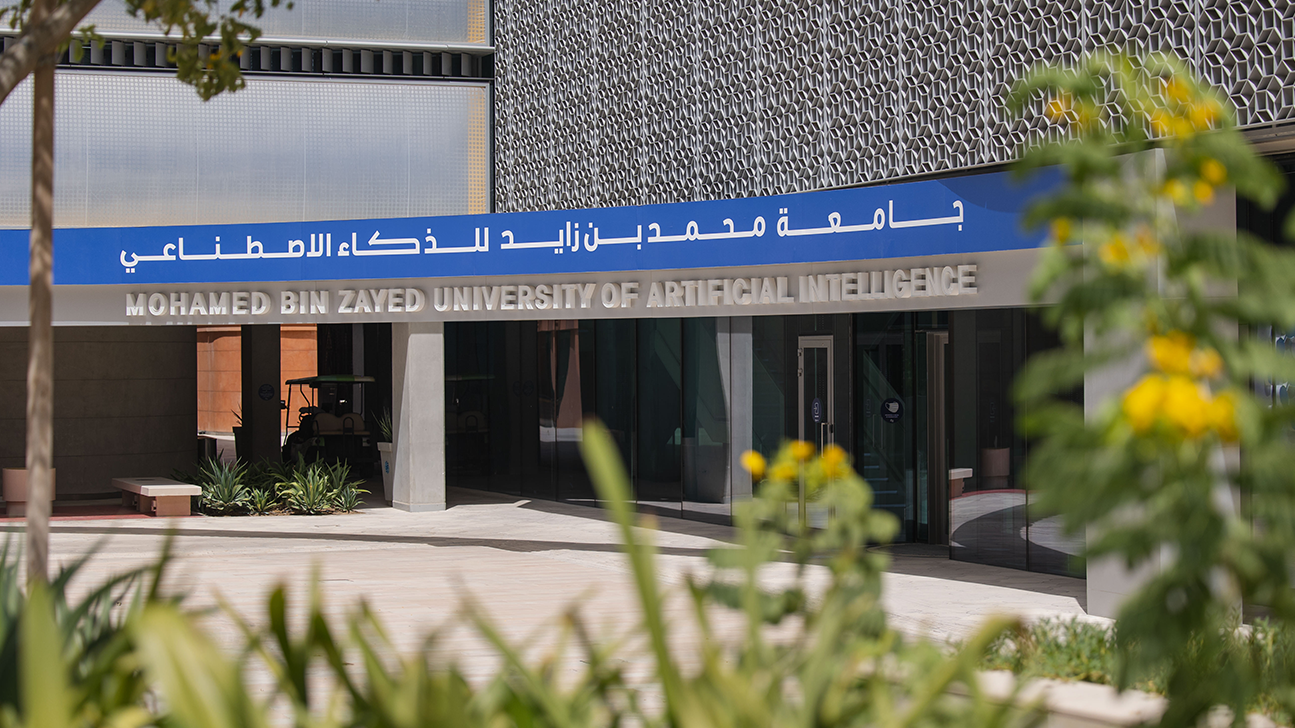Say hello to virtual human Hao Li
Wednesday, June 08, 2022

Movies and video games allow us to explore concepts untethered from reality. In them, we are transported to distant places, and we get to test out grand questions such as: What is reality? What does it mean to exist? and Who might I be in another time or dimension? These are the types of questions that drive Hao Li, the newest member of MBZUAI’s faculty and the CEO of startup Pinscreen.In Li’s vision of the future, we will increasingly rely on virtual humans—digital versions of ourselves—to act on our behalf, to travel to places we can’t physically go, and to interact at scale with other virtual humans. And it is scale, of all things, that Li feels is at the center of much of the conversation at present.
Imagine that you are able to stand in the same room and enjoy many of the advantages of in-person conversations, without the hassles of travel or disease transmission...
MBZUAI Associate Professor of Computer Vision
“The value of increased freedom of movement, and the ability to interact on a large scale, in ways very similar to the way we do in the “real world,” will be well worth the challenges,” Li continued. “Imagine that you are able to stand in the same room and enjoy many of the advantages of in-person conversations, without the hassles of travel or disease transmission. And you will be able to do it in large groups, in environments that are engaging.”
Not only does Li anticipate we will make use of virtual humans, he also believes that these digital projections of our selves could, in many circumstances, be better than us and help us improve.
“If I could just replicate myself as a teacher, the virtual Hao Li is a better educator than I am. He’s always happy, he’s never tired, and he knows every student by name—imagine that,” Li said.
Li’s work on the challenges involved in creating AI-driven, virtual humans as well as the possibilities and responsibilities that arise as we become a more seamlessly digital society can be seen in the following video from Amazon Web Services.
About Hao Li
Dr. Hao Li is an associate professor of computer vision at MBZUAI and the CEO of Pinscreen. Li’s area of expertise lies at the intersection of computer vision, computer graphics, and machine learning, with a focus on virtual humans, reality capture, and AI synthesis. His goal is to enable new AI and immersive technologies that can make the concept of the metaverse possible and enhance our lives with digital experiences that are otherwise not possible in the physical world.
Prior to joining MBZUAI, Li was a Distinguished Fellow of the Computer Vision Group at UC Berkeley and Associate Professor of Computer Science at the University of Southern California (USC), where he was also Director of the USC Institute for Creative Technologies. He has also served as a visiting professor at Weta Digital, a research lead at Industrial Light & Magic / Lucasfilm, and a postdoctoral fellow at Columbia and Princeton universities.
Li obtained his Ph.D. at ETH Zurich and his M.Sc. at the University of Karlsruhe (TH). Since 2019, Li has also been named to the DARPA ISAT Study Group, which brings together 30 of the top US computer scientists from leading universities and selected corporations to identify breakthrough technologies for national security.
Li has been named as one of the top innovators under 35 by MIT Technology Review (2013) and was featured in the first season of Amazon’s documentary series, re: Mars Luminaries (2022). He has also been a speaker at the World Economic Forum in Davos 2020 and exhibited a cutting-edge avatar-based virtual-try on technology at SXSW 2022.
He is the recipient of many awards including the Google Faculty Award (2013), the Okawa Foundation Research Grant (2013), the Andrew and Erna Viterbi Early Career Chair (2013), the Office of Naval Research (ONR) Young Investigator Award (2018), and the ACM SIGGRAPH Real-Time Live! ‘Best in Show’ Award (2020).
- faculty achievements ,
- research ,
- innovation ,
- digital twins ,
- metaverse ,
- li ,
Related
Using AI to detect congenital conditions before birth
A team from MBZUAI has developed FetalCLIP; a foundation model that can more accurately diagnose diseases before.....
- visual language model ,
- diseases ,
- illness ,
- biology ,
- foundation models ,
- health ,
- image analysis ,
- healthcare ,
Using AI to detect congenital conditions before birth
A team from MBZUAI has developed FetalCLIP; a foundation model that can more accurately diagnose diseases before.....
- foundation models ,
- visual language model ,
- diseases ,
- illness ,
- biology ,
- health ,
- image analysis ,
- healthcare ,
A new fast and accurate approach to 3D instance segmentation presented at ICLR
Mohamed El Amine Boudjoghra explains how his team have improved machines' speed and accuracy in recognizing objects.
- machines ,
- ICLR ,
- robotics ,
- computer science ,
- research ,

